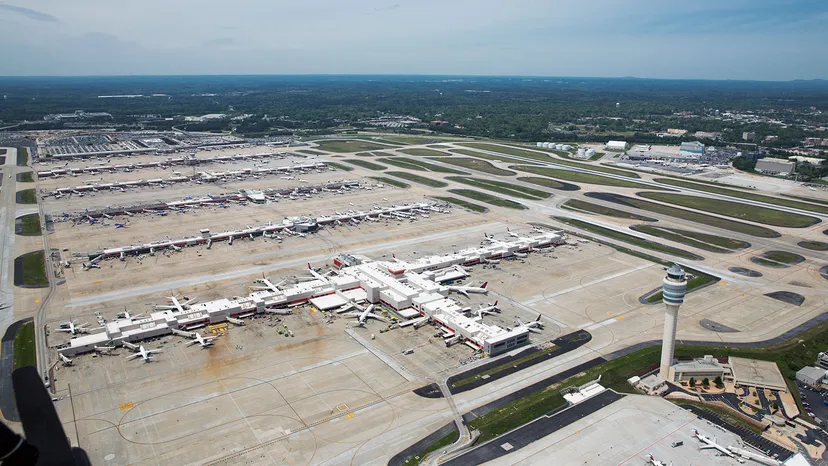Why Delta CEO Ed Bastian Opposes a Second Atlanta Airport
When many major U.S. cities operate multiple airports, Atlanta remains unique—a single behemoth hub at Hartsfield–Jackson (ATL) that handled over 108 million passengers in 2024. Despite speculation, Delta Air Lines CEO Ed Bastianfirmly rejects building a second airport. Here’s why he believes one is enough—and why expanding ATL makes more sense.
A Second Airport? Ed Calls It “Premature”
During discussions about future growth, Bastian pushed back strongly on the idea of a second airport:
“A single airport in Atlanta has a modular design that creates a lot of additional capability for growth… there’s not a city in this country that wouldn’t die to have in its backyard Hartsfield-Jackson.” He added that a second facility would only “divert some traffic flows for a very low-end purpose.”
These remarks reflect a strategy rooted in operational synergy, cost-efficiency, and preserving ATL as Delta’s critical nerve center.

Why Delta Stays Committed to ATL
1. ATL Is Central To Delta’s Identity
Atlanta is more than just home; it’s Delta’s operational and strategic heartbeat. With over 1,000 daily flights to more than 225 destinations, the hub’s connectivity powers the airline’s global network. Fragmenting operations would undermine this advantage.
2. Operational Efficiency and Passenger Convenience
Keeping everything—gates, baggage systems, maintenance, lounges—within one campus provides unmatched ease for transfers and scheduling. Bastian emphasizes that expanding and modernizing ATL, like building Concourse G, is a far more resourceful option than duplicating infrastructure elsewhere.
3. Cost, Complexity, and Practicality
Building a new airport is extraordinarily expensive. Beyond construction, there are environmental reviews, regulatory hurdles, and community resistance. Past feasibility studies—even with an FAA-backed grant in 2007—found such a project economically and operationally unworkable. Proposed sites like Dobbins Air Reserve Base and Cobb County Airport were quickly dismissed due to scale and cost concerns.
What’s at Stake—for Atlanta, Travelers, and Delta
| Aspect | Insights |
|---|---|
| Economic Impact | ATL supports hundreds of thousands of jobs and billions in Georgia’s GDP. A second hub could dilute that economic engine. |
| Passenger Experience | A single airport simplifies transfers, reduces travel time, and enhances consistency—especially for international connections. |
| Strategic Decisions at Play | Modular growth—like updated baggage systems and lounge expansions—delivers more bang for the buck than a full-blown new airport. |
| Long-Term Vision | Bastian frames ATL’s adaptability and infrastructure upgrades as forward-thinking approaches to meet future demand. |
Final Thoughts
Delta CEO Ed Bastian’s dismissal of a second Atlanta airport reflects a pragmatic, growth-centric approach. By investing in what’s already built, ATL remains a global aviation powerhouse—and Delta its undisputed operator.

